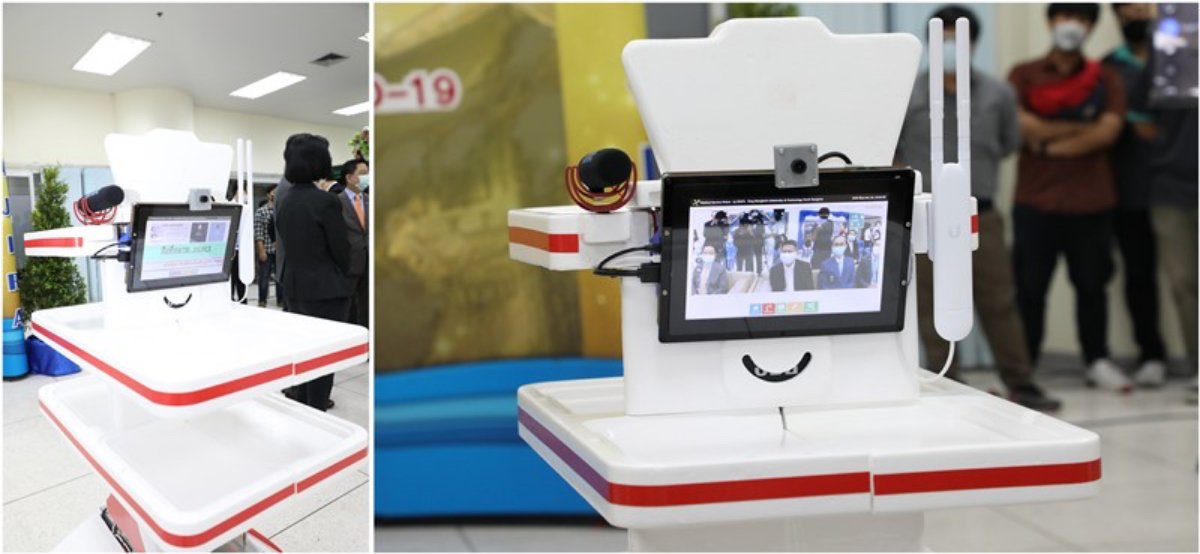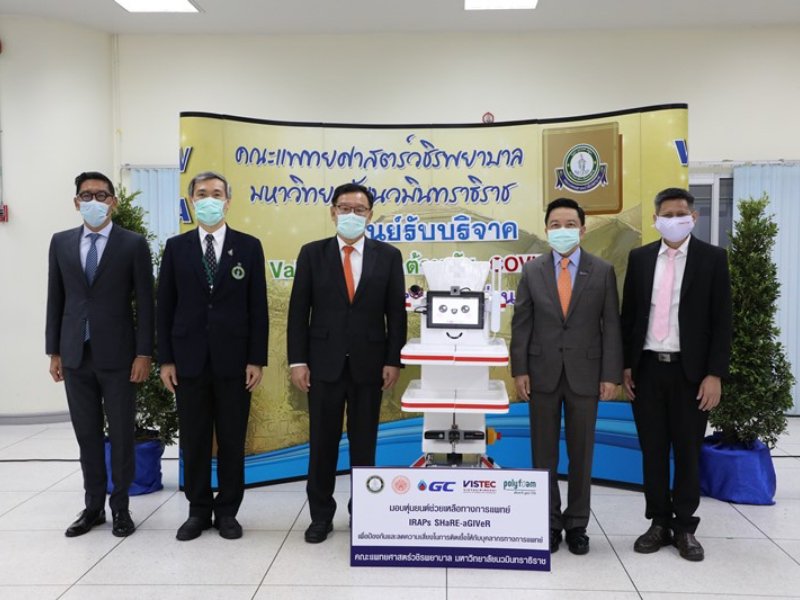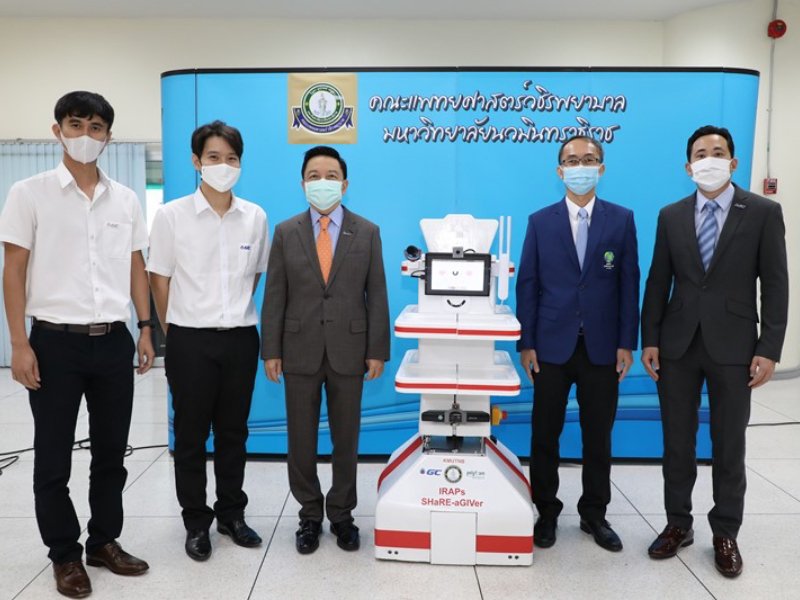Shared Robots, Advanced AI Can Help Beat Covid-19
Shared Robots, Advanced AI Can Help Beat Covid-19
The Shared Robots were designed using advanced artificial intelligence (AI) allowing physical distancing from doctors and nurses.
GC, King Mongkut's University of Technology North Bangkok, the Vidyasirimedhi Institute of Science and Technology (VISTEC), Navamindradhiraj University, and Polyfoam Group teamed up to develop “Shared Robots” by utilizing creative ideas and innovative technologies. The Shared Robots were designed using advanced artificial intelligence (AI) allowing physical distancing from doctors and nurses. The robots were provided to the Faculty of Medicine Vajira Hospital, Navamindradhiraj University, and Somdej Phranangchaosirikit Hospital, Naval Medical Department to both assist and ensure the safety of medical workers, providing increased protection from COVID-19, relieving anxiety and stress among patients, while also supporting communications through their teleconferencing function.
Nowadays, it isn’t an exaggeration to say that robots will rule the world. Robots were built by humans to replace them to do difficult, unhealthy or dangerous jobs, or to protect them from infectious diseases, such as COVID-19, which continues to have far-reaching impacts. The spread of COVID-19 and the increased number of cases, and fatalities globally prompted the initiation of the shared robots, as researchers worked to quickly develop vaccines. While the situation in Thailand is somewhat positive compared to other countries, it would be a mistake to underestimate the power of this disease as the country continues to prioritize the health of medical professionals and all Thais.
GC, King Mongkut's University of Technology North Bangkok, the Vidyasirimedhi Institute of Science and Technology (VISTEC), Navamindradhiraj University, and Polyfoam Group joined together to provide a medical robot called IRAPs SHaRE-aGIVeR, or “The Shared Robot” to the Faculty of Medicine Vajira Hospital, Navamindradhiraj University, and Somdej Phranangchaosirikit Hospital, Naval Medical Department. The robots will be used in each hospital to deliver items including medications and medical supplies, food, and patient medical records to doctors for examination in designated areas. The robot can also play music and videos for patients, helping relieve stress and anxiety, and facilitate teleconferencing between patients and their physicians allowing them to maintain physical distancing to prevent the transmission of COVID-19 and other diseases.

GC held discussions with the hospitals to improve prototype designs and find solutions to better develop the robot to meet the demands of medical professionals. In addition, GC contributed financial support to produce the Shared Robot.
VISTEC provided design software and developed a web page to record patient data to reduce diagnostic and treatment errors, thereby helping medical professionals. Additionally, Polyfoam Group engaged in the design process and provided the materials required for the production of the robot.
King Mongkut's University of Technology North Bangkok (KMUTNB), through a collaboration involving the Center for Innovative Robotics and Advanced Precision Systems (IRAPs) at King Mongkut's University of Technology North Bangkok, developed the Shared Robot which provides important features including its ability to deliver medical supplies, and act as a video link between doctors, nurses, and patients. The Shared Robot can also draw a map and recognize operational areas. Through this automated system, it can avoid obstacles and navigate safely to reach designated spots.
The ongoing and proactive cooperation between the academic and private sectors is another important step in effectively supporting medical professionals and the Thai people to safely and successfully overcome the pandemic.



Last Update Apr 2021

![The shared robot, or Thai robotics, is helping overcome COVID-19 [Thai Rath]](https://sustainability.pttgcgroup.com/storage/newsroom/news/2021/04/20210419-230620-1.jpg)
![GC presents “the shared robot” [SD Perspectives]](https://sustainability.pttgcgroup.com/storage/newsroom/news/2021/04/20210419-220620-1.jpg)
![The shared robot providing medical assistance at Somdej Phranangchaosirikit Hospital [Siam Rath]](https://sustainability.pttgcgroup.com/storage/newsroom/news/2021/04/20210419-200620-1.jpg)
![GC and partners join together to produce ‘the shared robot’ to Vajira Hospital and Somdej Phranangchaosirikit Hospital [The Bangkok Insight]](https://sustainability.pttgcgroup.com/storage/newsroom/news/2021/04/20210419-210620-1.jpg)
![GC, KMUTNB, VISTEC, and Polyfoam team up to develop and provide “The Shared Robot” or “Medical robotics” to the Faculty of Medicine Vajira Hospital, Navamindradhiraj University [Krungthep Turakij]](https://sustainability.pttgcgroup.com/storage/newsroom/news/2021/04/20210419-190620-1.jpg)




















